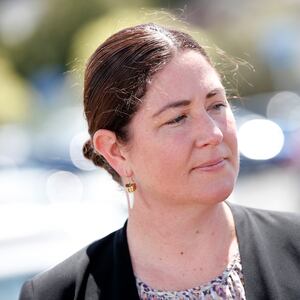Politics
Labour’s Response to NCEA Changes Raises Concerns Over Consultation

The New Zealand Government extended multiple invitations to the Labour Party for briefings on the upcoming changes to the National Certificate of Educational Achievement (NCEA), but Labour’s education spokeswoman, Willow-Jean Prime, did not respond initially and later declined the offers. This situation unfolded as the education sector prepared for significant reforms to the NCEA, with public announcements expected shortly thereafter.
In late July, as reports emerged regarding impending changes, Willow-Jean Prime finally reached out to Education Minister Erica Stanford. By that point, Stanford indicated that key decisions had already been finalized, stating, “the opportunity to influence the substantial direction of the proposal is no longer available.” This admission highlights a potential gap in cross-party communication as the reforms were being developed.
These developments occur in the context of Labour leader Chris Hipkins emphasizing the necessity of cross-party collaboration. In a statement to the Herald last month, he remarked on the efforts made during his tenure as Minister of Education to ensure that the opposition was extensively engaged in the NCEA review process. “I think the current Government should do the same,” Hipkins asserted, underscoring the importance of inclusive dialogue in educational reforms.
Concerns Over Lack of Engagement
The absence of timely communication from Willow-Jean Prime raises questions about the Labour Party’s engagement in significant educational reforms. The Government’s outreach to Labour was aimed at fostering collaboration and transparency, particularly given the potential impact of these changes on students and educational institutions across New Zealand.
Despite the Government’s efforts to include the opposition, the response from Labour suggests a disconnect that could undermine public confidence in the reform process. Stakeholders within the education sector have expressed concern that without proper consultation, the reforms may not adequately address the needs and perspectives of all parties involved.
The proposed changes to the NCEA aim to enhance the educational framework in New Zealand, making it more responsive to current educational demands. However, the effectiveness of these reforms may depend significantly on the level of engagement from all political parties, ensuring that diverse viewpoints are considered.
Next Steps for Educational Reform
As the Government prepares to implement the changes, it remains crucial for all stakeholders, including the Labour Party, to engage constructively in discussions about the future of the NCEA. The importance of cross-party dialogue cannot be overstated, especially in matters that directly affect the education of young New Zealanders.
Moving forward, the Government will need to demonstrate its commitment to transparency and collaboration, not only with the Labour Party but also with educators, students, and parents. Ensuring that the reform process is inclusive could lead to more effective outcomes and a stronger educational landscape for New Zealand.
The situation emphasizes a broader lesson about the necessity of open communication in politics, particularly in the realm of education, where the stakes are high and the implications far-reaching. As the reforms progress, observers will be keen to see whether the Government can foster a more collaborative environment moving forward.
-

 World4 months ago
World4 months agoTest Your Knowledge: Take the Herald’s Afternoon Quiz Today
-

 Sports4 months ago
Sports4 months agoPM Faces Backlash from Fans During Netball Trophy Ceremony
-

 Lifestyle4 months ago
Lifestyle4 months agoDunedin Designers Win Top Award at Hokonui Fashion Event
-

 Entertainment4 months ago
Entertainment4 months agoExperience the Excitement of ‘Chief of War’ in Oʻahu
-

 Sports4 months ago
Sports4 months agoLiam Lawson Launches New Era for Racing Bulls with Strong Start
-

 World5 months ago
World5 months agoCoalition Forms to Preserve Māori Wards in Hawke’s Bay
-

 Health4 months ago
Health4 months agoWalking Faster Offers Major Health Benefits for Older Adults
-

 Lifestyle4 months ago
Lifestyle4 months agoDisney Fan Reveals Dress Code Tips for Park Visitors
-

 Politics4 months ago
Politics4 months agoScots Rally with Humor and Music to Protest Trump’s Visit
-

 Top Stories5 months ago
Top Stories5 months agoUK and India Finalize Trade Deal to Boost Economic Ties
-

 Health2 months ago
Health2 months agoRadio Host Jay-Jay Feeney’s Partner Secures Visa to Stay in NZ
-

 World5 months ago
World5 months agoHuntly Begins Water Pipe Flushing to Resolve Brown Water Issue









